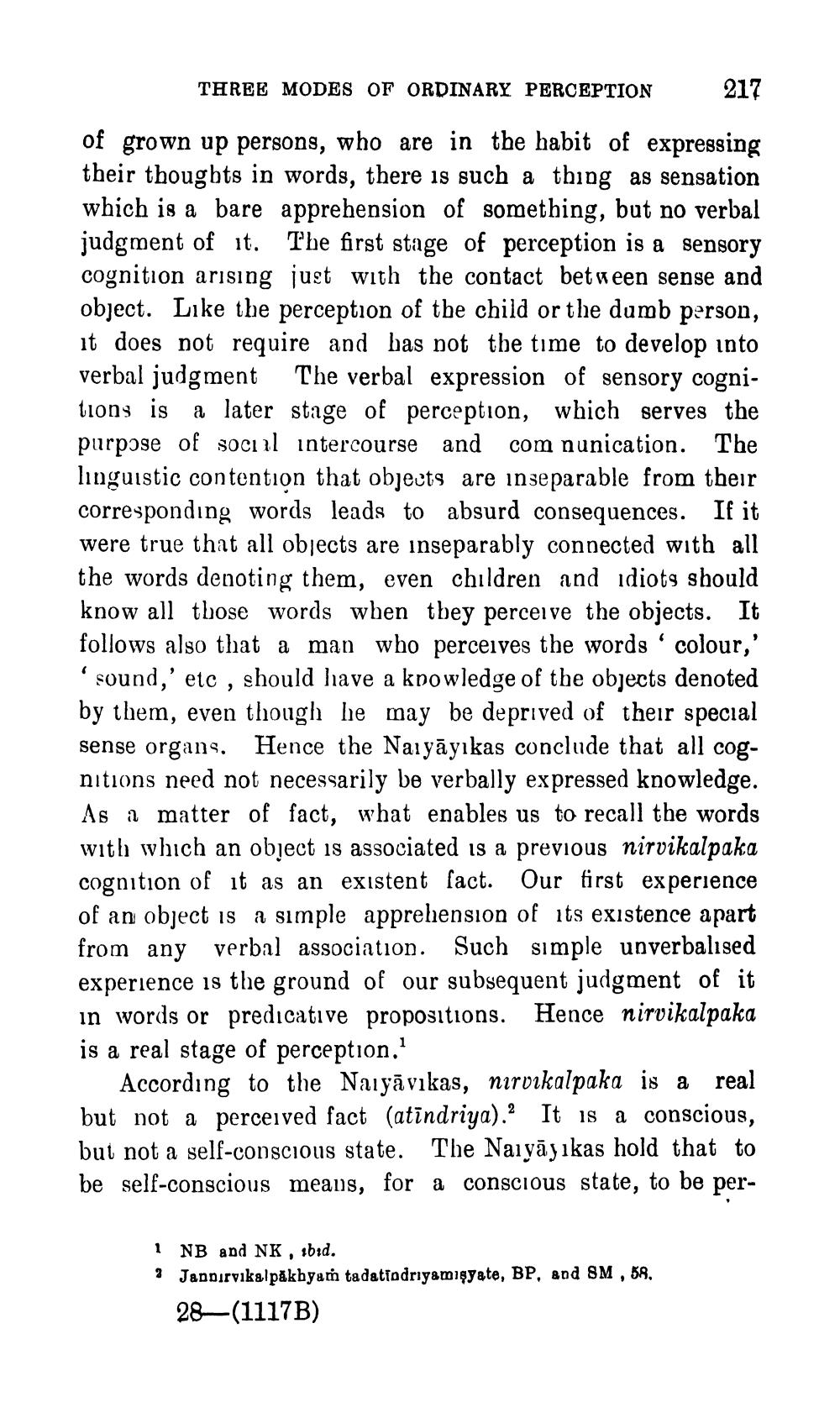________________
THREE MODES OF ORDINARY PERCEPTION
217
of grown up persons, who are in the habit of expressing their thoughts in words, there is such a thing as sensation which is a bare apprehension of something, but no verbal judgment of it. The first stage of perception is a sensory cognition arising just with the contact between sense and object. Like the perception of the child or the dumb person, it does not require and bas not the time to develop into verbal judgment The verbal expression of sensory cognitions is a later stage of perception, which serves the purpose of social intercourse and com nunication. The linguistic contention that objects are inseparable from their corresponding words leads to absurd consequences. If it were true that all objects are inseparably connected with all the words denoting them, even children and idiots should know all those words when they perceive the objects. It follows also that a man who perceives the words' colour,'
sound,' etc , should liave a knowledge of the objects denoted by them, even though he may be deprived of their special sense organs. Hence the Naiyāyıkas conclude that all cognitions need not necessarily be verbally expressed knowledge. As a matter of fact, what enables us to recall the words with which an obiect is associated is a previous nirvikalpaka cognition of it as an existent fact. Our first experience of an object is a simple apprehension of its existence apart from any verbal association. Such simple unverbalised experience is the ground of our subsequent judgment of it in words or predicative propositions. Hence nirvikalpaka is a real stage of perception."
According to the Naiyāvikas, nirvikalpaka is a real but not a perceived fact (atīndriya). It is a conscious, but not a self-conscious state. The Naiyāyikas hold that to be self-conscious means, for a conscious state, to be per
1 NB and NK , ibid. 3 Jandirvikalpakhyam tadatfodriyamışyate, BP, and SM , 5A,
28 (1117B)




